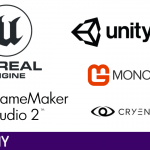Eager to break into the exciting field of data science, but don’t have any prior experience? Don’t let that stop you! In this article we will cover How to Launch a Successful Data Science Career With No Experience.
With the right strategic approach, you can gain the skills and experience needed to launch a fulfilling and lucrative data science career even starting from scratch.
In this comprehensive guide, I’ll share the complete roadmap on how to succeed in data science if you’re just getting started.
Contents:How to Launch a Successful Data Science Career With No Experience
Here are the key things you’ll learn:
- Core technical skills every aspiring data scientist needs to master
- How to gain hands-on experience through real-world projects
- Taking advantage of free online resources for learning
- Whether bootcamps and certifications are worthwhile
- Building a professional network and finding mentors
- Developing business acumen as a well-rounded candidate
- Staying persistent through the ups and downs of the journey
Follow these steps, and you’ll be well on your way to a thriving career in this exciting field!
Step 1: Master the Data Science Fundamentals
The first crucial step is dedicating focused time to build up core data science and analytics skills. The field draws from a diverse set of disciplines, so there’s a lot to cover.
While you may be eager to jump straight into fancy machine learning algorithms, having a solid base will benefit you immensely in the long run.
Here are the foundational areas every aspiring data scientist needs to get fluent in:

Statistics
Statistics provide the basic language and tools used throughout data science. Start by learning general statistical concepts like:
- Descriptive statistics – measures of central tendency, variance, distributions
- Probability distributions – binomial, Poisson, Gaussian, etc.
- Statistical inference – hypothesis testing, confidence intervals
- Correlation analysis – covariance, Pearson coefficient
- Regression analysis – simple linear regression, multiple regression, logistic regression
- Time series analysis – trends, seasonality, autocorrelation
- Statistical sampling methods
- Statistical power analysis
Then level up to more advanced methods like Bayesian statistics, Monte Carlo simulations, bootstrapping, and dimensionality reduction techniques like principal component analysis.
Try applying the techniques by hand before relying on Python/R libraries. Thoroughly understanding the core concepts will serve you well.
We have also an article with some books that cover the topic of statistics in Data Science

Programming
Being able to wrangle and analyze data programmatically is a must. Python and R are the most popular languages for data science tasks.
Start by learning general programming fundamentals in one of the languages:
- Syntax, control flows, functions, objects
- Working with different data types like strings, lists, tuples
- Data structures like arrays, dictionaries, data frames
- Reading/writing files, user input
- Debugging code
- Modules and packages
Then move onto techniques specific to data analysis:
- Importing/exporting data from different formats like CSV
- Data cleaning and munging with libraries like NumPy, Pandas
- Data visualization using Matplotlib, Seaborn, ggplot2
- Machine learning libraries like SciKit Learn, Caret, TensorFlow
Aim to become proficient in at least one language. This will enable you to efficiently manipulate data programmatically.
Data Wrangling
Real-world data is often messy and needs significant wrangling before analysis. Data scientists can spend up to 80% of their time just cleaning and preparing data!
Practice essential data wrangling skills like:
- Combining data from different sources into unified datasets
- Handling missing values and errors
- Parsing unstructured data like text/images into structured formats
- Identifying and removing outliers and anomalies
- Manipulating data types: encoding, binning, one-hot encoding
- Random sampling large datasets
Also learn tools that make wrangling easier:
- SQL for extracting and transforming data from databases
- Excel for basic cleansing and reshaping
- APIs for pulling data from web services
- Regular expressions for advanced text parsing
- Pandas data frames for preprocessing data in Python
- Tidyverse for wrangling in R
Smooth, well-prepared data leads to better models. Hone your wrangling skills to avoid “garbage in, garbage out.”

Machine Learning
Machine learning sits at the core of modern data science. Start by learning basic algorithms:
- Linear and logistic regression
- Decision trees and random forests
- K-means clustering
- Support vector machines
- Neural networks
Understand how each model works and their pros and cons. Implement them yourself from scratch before relying on Python/R libraries like Scikit-Learn.
Then explore more advanced techniques:
- Ensemble methods like boosting and stacking
- Deep learning with TensorFlow/Keras
- Natural language processing models like TF-IDF, word2vec, BERT
- Computer vision algorithms like convolutional neural nets
Consider competing in machine learning competitions on Kaggle to apply techniques on real-world problems.
Aim to become proficient in both the theory and practical implementation of ML algorithms. This forms the meat of modern data science.

Data Visualization
Data visualization allows you to clearly communicate insights from data. Learn visualization libraries like:
- Matplotlib for basic plots in Python
- Seaborn for statistical graphics in Python
- ggplot2 for flexible visuals in R
- Tableau for interactive business intelligence dashboards
- D3.js for web-based visuals and mapping
Beyond libraries, understand visual best practices:
- How to pick optimal chart types for different data types
- Design choices for effective visual storytelling
- Principles for intuitive and beautiful data visualization
- Creating visualizations for different audiences and use cases
- Interactive visuals and dashboards over static images
Strong visualization skills will help you translate your data findings into compelling stories.
Big Data Engineering
While not mandatory, having basic big data skills can make you much more versatile:
- Working with distributed systems like Hadoop, Spark, Kafka
- Stream processing and real-time analytics
- Building data pipelines and ETL processes
- Using cloud platforms like AWS, GCP, Azure
- Containers and orchestration with Docker and Kubernetes
- Data modeling, warehousing, and lakes
Even a high-level understanding of enterprise data engineering will help you collaborate cross-functionally.
Domain Expertise
While data science can be applied across industries, having some domain experience in fields like:
- Business analytics
- Digital marketing and advertising
- Finance model risk management
- Healthcare informatics
- Gaming analytics
Can give you valuable context for the problems you’ll tackle. Begin reading up on potential focus areas.
This covers the broad range of technical skills every aspiring data scientist needs to master. It may seem like a lot, but don’t get overwhelmed!
Use online courses, books, tutorials, certifications and practice projects to gradually build up expertise in each area. Gaining a solid base in the fundamentals will pay dividends for years to come.
Next, let’s look at how hands-on projects can help you take book knowledge and directly apply it…
Step 2: Build Your Portfolio Through Projects
Once you have a decent grasp of core data science concepts, it’s crucial to start applying those skills through hands-on projects.
Working through end-to-end projects will give you critical experience and also create an impressive portfolio to demonstrate your abilities.
Here are some ways to start building up your portfolio:
Kaggle Competitions
Kaggle hosts machine learning competitions for real-world problems posed by organizations. Competitions are time-boxed with monetary prizes and rankings on public leaderboards.
Participating in Kaggle competitions is a structured way to gain experience:
- Download datasets and practice end-to-end modeling
- Experiment to improve your model performance against thousands of others
- Learn new techniques by studying winning notebooks
- Get introduced to problems faced by organizations
- Potentially win prizes and certifications
Even if you don’t rank highly, you’ll build key project experience.
Public Datasets
Many public datasets are freely available for analysis:
- Government data portals like data.gov and data.europa.eu
- Healthcare datasets from sites like healthdata.gov
- Social media data through APIs like Twitter and Reddit
- Open database initiatives like Wikipedia, data world, and Quandl
Find an interesting public dataset, formulate questions, and conduct an analysis project. Public datasets provide structured learning opportunities.

Internal Business Problems
If you currently work at a company, look for ways to apply data science to their business problems:
- Talk to managers about pain points and areas for optimization
- Offer to work on projects during free cycles or as a special assignment
- Look for ways to automate processes or improve decisions through analysis
Delivering tangible business value applies classroom learning and builds credibility.

Personal Passion Projects
Pursuing a project for a hobby, interest or passion is rewarding. Ideas:
- Sports analytics – analyze player statistics or predict match outcomes
- Gaming analytics – build bots, optimize strategies, model player behavior
- Stock market predictions – predict prices, optimize simulated portfolios
- Social media analytics – analyze user engagement, visualize discussions
- Music/movie analytics – classify genres, recommend suggestions, predict popularity
Here is a draft conclusion with call to action for the blog post:
conclusion How to Launch a Successful Data Science Career
Gaining the skills to launch a successful data science career takes time and dedication. There will inevitably be roadblocks and setbacks as you build up your expertise.
Stay motivated through the ups and downs by focusing on small wins, finding a support system, and tracking your progress.
Trust that persevering through the learning process will pay off handsomely in the end. Use the steps in this guide to help you:
- Methodically build up technical data science skills
- Gain hands-on experience through projects
- Take advantage of the wealth of free online resources
- Expand your professional network and find mentors
- Develop business acumen as a well-rounded candidate
The field of data science is exciting but competitive. With the right strategic approach, however, anyone can carve out a fulfilling career – even starting from scratch.
I hope this guide gives you clarity on succeeding in data science if you’re just getting started. Let me know in the comments if you have any other questions! I’m happy to offer advice or elaboration on any part of the process.
Also, don’t forget to subscribe to my blog for more content on launching a thriving analytics, data science, and machine learning career.
Keep working toward your goals and let your curiosity guide you to a fun project.


![Buildbox Free - How To Make 2D Platformer Game [PART 1]](https://e928cfdc7rs.exactdn.com/info/uploads/sites/3/2020/01/Buildbox-Free-How-To-Make-2D-Platformer-Game-PART-150x150.jpg?strip=all&lossy=1&ssl=1)

